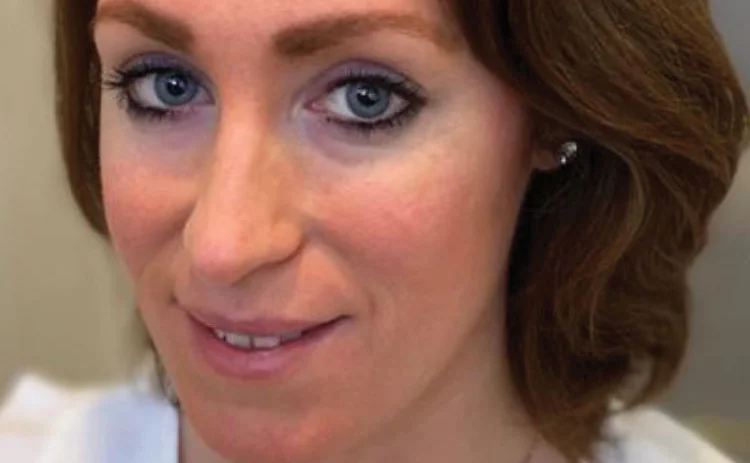
Base metals house of the year: BNP Paribas
Energy Risk Awards 2021: Long-term deals and energy transition reinforce bank’s commitment to metals markets

The energy transition was a strong theme for BNP Paribas’ base metals business last year, with the bank supporting clients in sectors that will be key to achieving a low-carbon future.
Increasing environmental concerns and regulations have affected several base metals markets in recent years. For example, demand for higher-grade iron ore, which uses less coking coal during production, has risen in recent years. This has created a need for a wider range of contracts to satisfy hedging needs.
“Iron ore is one of the major inputs into the steelmaking process and the 62% iron ore contract has traditionally been the benchmark,” says Jenny Boyce, senior corporate metals sales at BNP Paribas. “We are now seeing a pick-up in demand for the higher-grade 65% contract.” The spread between the two contracts widened throughout 2020 and into 2021, due in part to demand for greater purity and better environmental credentials among steel producers.
Similar factors have also resulted in a shift in hedging trends in other base metals markets. The introduction of a new European hot-rolled coil steel contract by the CME last year has allowed developers to hedge against price fluctuations for this type of steel, which is often used by wind-farm developers for turbine towers and jackets in the offshore sector.
“European steel prices, which have for some time been around the €350–400 ($416–475) a ton (/t) mark, have been trading at highs of more than €1,000/t recently,” Boyce says. “That explosion in prices has come at almost the same time that subsidies have been dropped for many European wind farms. It has certainly made the topic of hedging even more important for a wind-farm developer to enable them to manage price risk on a project that could see time lags of anywhere from two to four years between tender and construction.”
BNP Paribas has also been working with power companies to manage risks relating to contracts with aluminium smelters. Since electricity is one of the three major cost components for aluminium smelters (along with alumina and carbon anodes), linking power contracts to an aluminium price indexation helps producers to partially offset their market risk, according to Boyce. However, this shifts the exposure onto the power companies who are then affected by fluctuations in the aluminium market, sometimes as much as 10 years out.
BNP Paribas helps to both develop and implement risk management programmes for the longer-dated aluminium exposures of such companies. It can offer liquidity on large volumes via both swaps and options without leaving a footprint in the market, Boyce says. The bank also combines expertise in credit, coverage and product teams to deliver the credit facilities necessary to support these programmes, particularly where there is a renewable energy focus.
BNP Paribas’ ability to leverage its wide geographical footprint and bring together teams of internal expertise to work on key projects also resulted in the base metals business playing a key role in a large copper hedge programme last year.
The bank was appointed mandated lead arranger, hedge co-ordinator, documentation agent and offshore collateral agent and depository bank for a large brownfield copper project expansion in Latin America. The base metals team successfully pitched, negotiated and closed the hedging programme, which was part of a senior secured project finance facility led by its Paris-based energy, resources and infrastructure team. It worked with the client from a very early stage of the project and was involved with modelling, as well as developing the hedge programme from start to finish.
BNP Paribas also continued to integrate a portfolio of over-the-counter metals transactions purchased from Societe Generale in January 2020, which coincided with the market turbulence caused by Covid-related restrictions.
While the onboarding process for the new clients went ahead without issue, according to Davide Collini, head of metals corporate sales, macro, Europe, the Middle East & Africa at BNP Paribas, he points out that market conditions at the time were difficult. “Even ordinarily, this would have been a difficult exercise. With the added challenges brought about by Covid, BNP Paribas’ ability to deliver and ensure business continuity for these clients was a strong message of commitment,” he says.
Collini believes the acquisition not only strengthens the base metals franchise, but – alongside the bank’s commitment to supporting the energy transition – is also a strong signal of BNP Paribas’ long-term commitment to these markets.
Only users who have a paid subscription or are part of a corporate subscription are able to print or copy content.
To access these options, along with all other subscription benefits, please contact info@risk.net or view our subscription options here: http://subscriptions.risk.net/subscribe
You are currently unable to print this content. Please contact info@risk.net to find out more.
You are currently unable to copy this content. Please contact info@risk.net to find out more.
Copyright Infopro Digital Limited. All rights reserved.
As outlined in our terms and conditions, https://www.infopro-digital.com/terms-and-conditions/subscriptions/ (point 2.4), printing is limited to a single copy.
If you would like to purchase additional rights please email info@risk.net
Copyright Infopro Digital Limited. All rights reserved.
You may share this content using our article tools. As outlined in our terms and conditions, https://www.infopro-digital.com/terms-and-conditions/subscriptions/ (clause 2.4), an Authorised User may only make one copy of the materials for their own personal use. You must also comply with the restrictions in clause 2.5.
If you would like to purchase additional rights please email info@risk.net
More on Awards
Market data provider of the year: S&P Global Market Intelligence
S&P Global Market Intelligence has consistently met demands across Apac’s fast‑evolving capital markets, securing its win at the Risk Asia Awards 2025
Best user interface innovation: J.P. Morgan
J.P. Morgan wins Best user interface innovation thanks to its Beta One portfolio solution
Market liquidity risk product of the year: Bloomberg
Bringing clarity and defensibility to liquidity risk in a fragmented fixed income market
FRTB (SA) product of the year: Bloomberg
A globally consistent and reliable regulatory standardised approach for FRTB
Best use of cloud: ActiveViam
Redefining high-performance risk analytics in the cloud
Best use of machine learning/AI: ActiveViam
Bringing machine intelligence to real-time risk analytics
Collateral management and optimisation product of the year: CloudMargin
Delivering the modern blueprint for enterprise collateral resilience
Flow market-maker of the year: Citadel Securities
Risk Awards 2026: No financing; no long-dated swaps? “No distractions,” says Esposito








